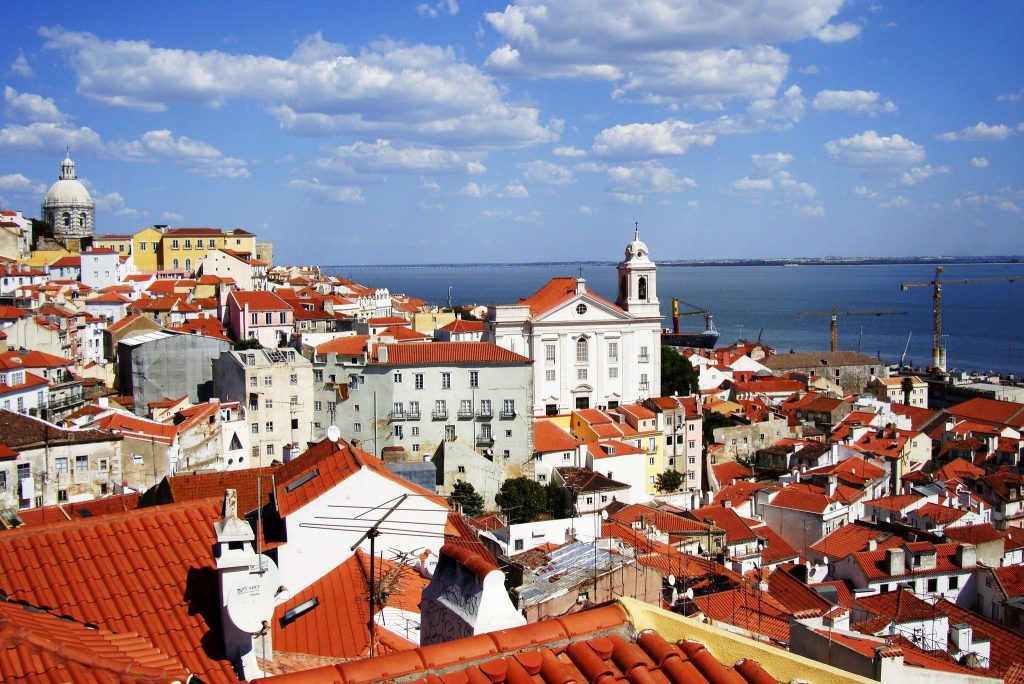Skift Take
No major surprises in this latest phase of international reopening, but serious questions over the U.S.'s absence.
The UK government on Friday finally announced its list of “green light” destinations, but the travel industry has mostly given it a lukewarm reception due to several notable absences, including the U.S.
Transport Secretary Grant Shapps confirmed a list of countries that people in England can travel to on a “non-essential” basis and return quarantine-free. It begins on May 17.
They are: Portugal; Israel; Singapore; Australia; New Zealand; Brunei; Iceland; Gibraltar; Falkland Islands; Faroe Islands; South Georgia and the South Sandwich Islands; and St Helena, Tristan de Cunha, Ascension Island.
Join Us at the Skift Short-Term Rental and Outdoor Summit on May 19
Covid-19 tests, however, will be required before and after travel.
Yes, there’s relief. Most travel travel businesses and organizations will be happy the government has, finally, made a decision. With that comes some degree of certainty.
Online travel agent Thomas Cook reported a 264 percent increase in searches for holidays to Portugal, compared with the previous Friday. Bookings were up 250 percent week-on-week. Gibraltar has seen a 277 percent increase in searches, while sales rose 100 percent.
“Our data shows more than six million people are poised ready to book a summer holiday and we expect many will hold until the next announcement comes,” said CEO Alan French, who added five-star hotels were particularly in demand.
But with such a successful Covid-19 vaccination roll-out, many hoped for more.
Conspicuously Absent
The omission of the U.S. is being viewed as a missed opportunity to speed up recovery. Stakeholders on both sides of the pond had been anticipating the reopening between the two nations as a safe corridor between two-highly vaccinated destinations.
“It is hugely disappointing that the U.S. has not been included on the green list. We welcome that active conversations are underway with the Biden administration, but progress has been too slow,” said Andrew Crawley, chief commercial officer at American Express Global Business Travel, adding that keeping the U.S.-UK transatlantic route closed meant billions of pounds in revenue losses for both countries.
The U.S. Travel Association (USTA) agreed on the magnitude of lost revenue, while pointing to the UK’s failure to base its decision on science.
“Putting the U.S. on amber status ignores the scientific data regarding increasing vaccination rates, lower infection rates and that the U.S. has the right strategies in place to mitigate risk,” said Roger Dow, CEO of USTA. Dow also called on the U.S. to demonstrate leadership and increase dialogue with the UK.
An even greater blow comes for Malta, also off the list and which had recently eased restrictions for UK travelers for its reopening on June 1, including launching hotel incentives to get visitors to extend their overnight stays. Without the UK market to count on in June, it could be a bigger blow to the tourism-dependent nation.
“While we understand that protecting public health should be the priority, the UK is being too cautious and risks losing its hard-won competitive advantage achieved by the early vaccine roll-out by being too slow to allow the significant resumption of international travel,” said Gloria Guevara, CEO of the World Travel and Tourism Council.
The green, amber and red lists will be reviewed every three weeks, beginning May 17. Gavin Landry, executive vice president for the Americas at VisitBritain, said he hoped the guidance would be reassessed, due to the “successful roll-out of the vaccine programmes in both countries and the importance of the transatlantic route for business and tourism.”
Another complaint, meanwhile, was that Friday’s announcement failed to include the corporate travel sector. “We have been completely disregarded as a sector,” said Jason Oshiokpekhai, managing director of Global Travel Collection UK. “It is imperative that the business travel sector is considered for quarantine exemption with proof of a negative test or vaccine protection.”
Clive Wratten, CEO of the Business Travel Association, said he welcomed the inclusion of Singapore, as it showed the government’s commitment to both business and leisure travel. “However, key business destinations with low infection and high vaccination rates are not included such as the U.S. and the UAE,” he added.
Breaking: This story is breaking. Check back for updates.
Register Now for the Skift Short-Term Rental and Outdoor Summit on May 19
The Daily Newsletter
Our daily coverage of the global travel industry. Written by editors and analysts from across Skift’s brands.
Have a confidential tip for Skift? Get in touch
Tags: american express global business travel, coronavirus, portugal, usa, visitbritain, wttc
Photo credit: Thomas Cook expects record demand for Lisbon in Portugal. Rustam Aliyev / Flickr
